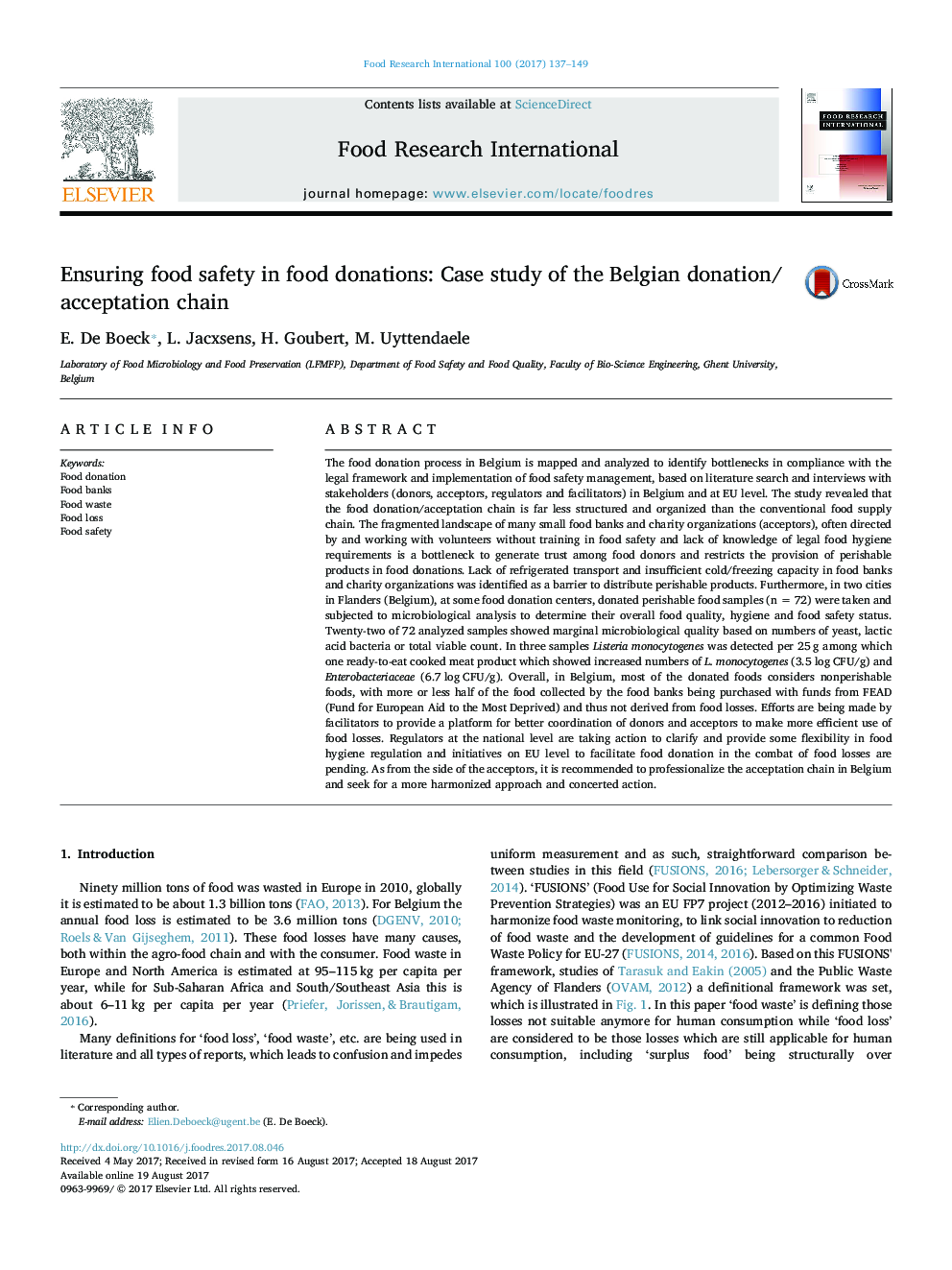| کد مقاله | کد نشریه | سال انتشار | مقاله انگلیسی | نسخه تمام متن |
|---|---|---|---|---|
| 5767836 | 1413206 | 2017 | 13 صفحه PDF | دانلود رایگان |
- Food donation in Belgium is mapped, also the European framework is investigated.
- Bottlenecks in legal framework and food safety management are identified.
- The Belgian donation process is very fragmented and lacks coordination/harmonization.
- 72 donated perishable food samples were subjected to microbiological analysis.
- Our study reveals the need for a more harmonized approach and concerted action.
The food donation process in Belgium is mapped and analyzed to identify bottlenecks in compliance with the legal framework and implementation of food safety management, based on literature search and interviews with stakeholders (donors, acceptors, regulators and facilitators) in Belgium and at EU level. The study revealed that the food donation/acceptation chain is far less structured and organized than the conventional food supply chain. The fragmented landscape of many small food banks and charity organizations (acceptors), often directed by and working with volunteers without training in food safety and lack of knowledge of legal food hygiene requirements is a bottleneck to generate trust among food donors and restricts the provision of perishable products in food donations. Lack of refrigerated transport and insufficient cold/freezing capacity in food banks and charity organizations was identified as a barrier to distribute perishable products. Furthermore, in two cities in Flanders (Belgium), at some food donation centers, donated perishable food samples (n = 72) were taken and subjected to microbiological analysis to determine their overall food quality, hygiene and food safety status. Twenty-two of 72 analyzed samples showed marginal microbiological quality based on numbers of yeast, lactic acid bacteria or total viable count. In three samples Listeria monocytogenes was detected per 25 g among which one ready-to-eat cooked meat product which showed increased numbers of L. monocytogenes (3.5 log CFU/g) and Enterobacteriaceae (6.7 log CFU/g). Overall, in Belgium, most of the donated foods considers nonperishable foods, with more or less half of the food collected by the food banks being purchased with funds from FEAD (Fund for European Aid to the Most Deprived) and thus not derived from food losses. Efforts are being made by facilitators to provide a platform for better coordination of donors and acceptors to make more efficient use of food losses. Regulators at the national level are taking action to clarify and provide some flexibility in food hygiene regulation and initiatives on EU level to facilitate food donation in the combat of food losses are pending. As from the side of the acceptors, it is recommended to professionalize the acceptation chain in Belgium and seek for a more harmonized approach and concerted action.
213
Journal: Food Research International - Volume 100, Part 2, October 2017, Pages 137-149
